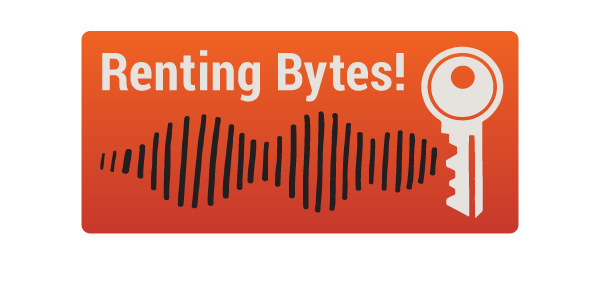Housing News Digest
Housing News Digest
The Tenants' Union Housing News Digest compiles our pick of items from all the latest tenancy and housing media, sent once per week, on Thursdays.
Below is the Digest archive from November 2020 onwards. From time to time you will find additional items in the archive that did not make it into the weekly Digest email. Earlier archives are here, where you can also find additional digests by other organisations.
Our main email newsletter, Tenant News is sent once every two months. You can subscribe or update your subscription preferences for any of our email newsletters here.
See notes about the Digest and a list of other contributors here. Many thanks to those contributors for sharing links with us.
We love sharing the news and hope you find it informative! We're very happy to deliver it for free, but if you find it valuable, can you help cover the extra costs incurred by making a donation?
Archive
Omicron outbreak plunges NSW rental market into limbo
Martin Kelly (Paywall)Omicron has frozen rental markets throughout NSW as people put moving plans on hold and shelter in place to avoid catching the virus. Tim McKibbin, chief executive of the Real Estate Institute of NSW, said the state’s rental market was in limbo. There was minimal change in rental vacancy rates throughout NSW during December, with renters reluctant to move. “The impact of the omicron variant is being felt everywhere and the residential rental market is not immune,” Mr McKibbin said. The industry expected to see a pause in market activity leading into the festive season, he said. “However, REINSW members are reporting that this usual lull was exacerbated in December because people are hesitant about the future as omicron continues to spread,” Mr McKibbin said. “As a result, many are delaying their plans to move, leaving the market in limbo.” (Financial Review)
https://www.afr.com/property/residential/omicron-outbreak-sends-…
# NSW, Rent, Coronavirus COVID-19, Housing market, Landlords and agents.Climate change, poor housing fuelling energy concerns for First Nations communities
Cameron Gooley The Sydney Morning Herald (Paywall)More than 90 per cent of households surveyed in remote Indigenous communities in the Northern Territory had their electricity disconnected over a 12-month period, according to a new study investigating the link between the problem and extreme temperatures. ... “In other parts of Australia where consumers are protected by the Australian Energy Regulator guidelines, people cannot be disconnected from electricity when life support medical equipment is being used,” the study found. “This protection is not comprehensively applied in remote NT communities.” It also found a link between extreme temperatures and the chances of a home having its power disconnected, leaving researchers concerned Indigenous communities are already feeling the brunt of climate change.
https://www.smh.com.au/environment/climate-change/climate-change…
# Australia, Aboriginal renters, Rent, Utilities electricity water gas, Climate change.FEANTSA Flash
European Federation of National Organisations Working with the Homeless (No paywall)Happy new year and welcome back to the FEANTSA Flash! We hope the Christmas break has left you feeling restored and ready to continue your work tackling homelessness in 2022. Ambition seems to be high this year with the French Presidency of the Council of the European Union listing working towards the eradication of homelessness, namely through the European Platform on Combatting Homelessness, among their priorities. Read on to find out more.
https://mailchi.mp/feantsa/the-latest-updates-on-homelessness-in…
# International, Campaigns and law reform, Homelessness.‘Designed to heal’: The Sydney garden that may be key to our mental health
Angus Thompson The Sydney Morning Herald (Paywall)The patch of rainforest in the sprawling grounds of the drug and alcohol rehabilitation centre is a favourite spot for the residents. On more than one occasion, the centre’s director, Garth Popple, has said he wants his ashes to be spread about the haven of palm trees, bamboo, and buttresses of the Moreton Bay fig. “Where do you get this in the inner city?” he asks over the chorus of cicadas droning in the tropical January heat, minutes before a downpour that dances across the canopy. Nature appears to be reclaiming much of the area around Broughton Hall, the NSW Health-owned site on which the non-profit facility We Help Ourselves (WHOS) is based, deep-set in a corner of Callan Park, in Sydney’s inner west.
https://www.smh.com.au/national/nsw/designed-to-heal-the-sydney-…
# NSW, Health, Planning and development.How the Brisbane Olympics could cause a high jump for property prices
Sarah Webb Domain (No paywall)The Brisbane 2032 Summer Olympics could fuel the biggest real estate renaissance in the city’s history, with industry experts predicting a gilded decade of property price growth that will push the median house price past the million-dollar mark and see key infrastructure suburbs soar.
https://www.smh.com.au/property/news/how-the-brisbane-olympics-c…
# Australia, Housing market.Technology has made buildings less climate-friendly: but we can look back in time for solutions
Bashar Al Shawa The Conversation (No paywall)It’s been claimed that technology is the answer to the climate crisis. By eventually separating economic growth from its effects on the environment through improving energy efficiency, the argument runs, better technology promises to prevent catastrophic global warming. But among the many things that this argument fails to consider is the reality that new technology has often encouraged extravagant forms of consumption: from private cars and planes to kitchens full of appliances and air conditioning in countries with mild climates. Technology has also caused what’s called the “rebound effect”: where improving energy efficiency leads to cheaper energy and therefore higher rates of energy consumption. For example, buying a more fuel-efficient car will reduce your average fuel cost per trip and thus is likely to lead to more trips, taking away at least some of your anticipated energy savings.
A similar trend appears in architecture ... [Read on]
https://theconversation.com/technology-has-made-buildings-less-c…
# International, Utilities electricity water gas, Climate change, Housing market.Cities are made from more than buildings and roads. They are also made by ambiences – how a city makes you feel
Jordan Lacey The Conversation (No paywall)How does a city feel? Energetic, unnerving, invigorating, relaxing? This is a key question often asked by designers who consider the ambience of a city. Typically, when we think of a city we jump straight to thinking about its buildings, roads, shops and parklands: the physical things we are surrounded by. But what about all those invisible things in between?
https://theconversation.com/cities-are-made-from-more-than-build…
# Australia, Planning and development.Scottish regulator to appoint 12 tenant advisors
Lucie Heath Inside Housing (Paywall)The Scottish Housing Regulator is recruiting 12 volunteer tenant advisors to bring a tenant perspective to its scrutiny of landlords’ services. Applications are currently being accepted from tenants of councils and registered social landlords (RSLs) across Scotland, with individuals “from all walks of life” being encouraged to apply. Tenant advisors will have a number of responsibilities, including acting as ‘mystery shoppers’ to assess information and materials produced by landlords. They will also be asked to review the SHR’s draft publications and website to ensure that its material is accessible and user-friendly for tenants. The tenants will also ask other service users for their views to give the SHR a direct user perspective to add to other regulatory evidence.
https://www.insidehousing.co.uk/news/news/scottish-regulator-to-…
# International, Public and community housing.



